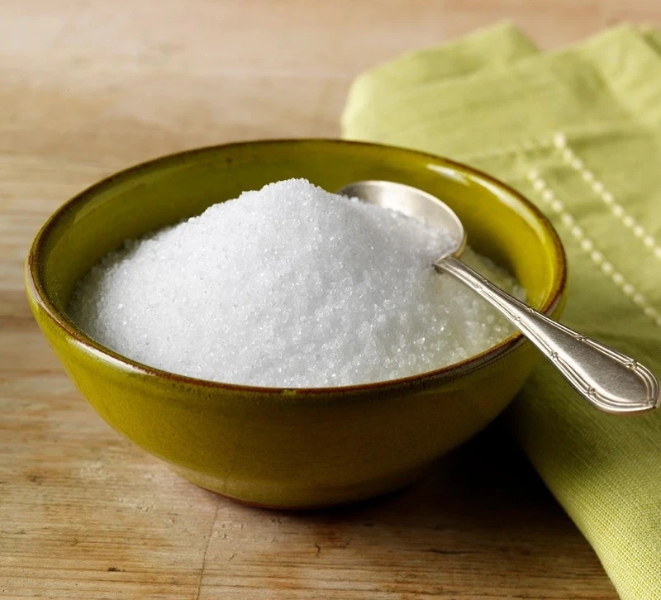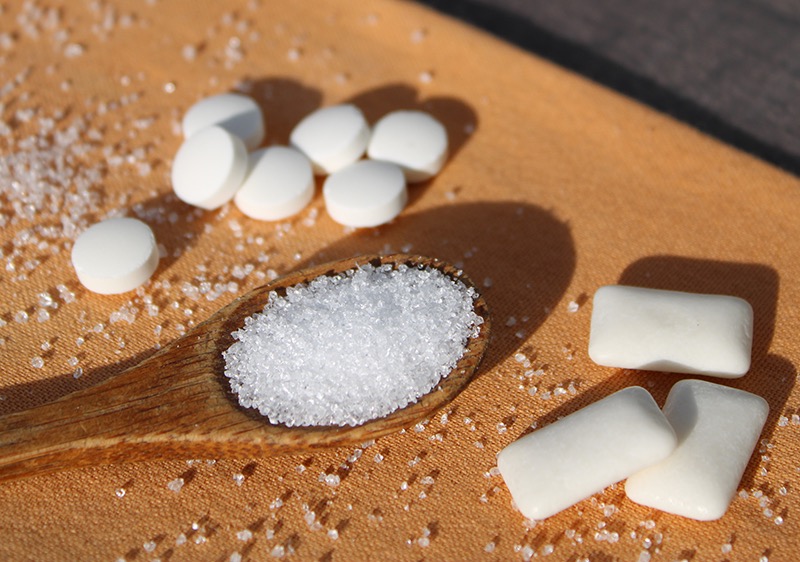Views: 222 Author: Sara Publish Time: 2025-10-24 Origin: Site








Content Menu
● Health effects: what science says
● Dental health and caries prevention
● Digestive tolerance and general safety
● Cardiovascular health and metabolic considerations
● Gut health and prebiotic potential
● Immune function and respiratory health
● Bone health and skin effects
● Safety in specific populations and settings
● Regulatory and labeling considerations
● Safe use guidelines for manufacturers
● Practical considerations for different product categories
● Quality control and manufacturing considerations
● Consumer education and communication
● Evidence-informed considerations
● FAQ
>> 1. How much xylitol is safe for adults per day?
>> 2. Do xylitol and other sugar alcohols affect dental health in the same way?
>> 3. Can xylitol be used in pet products safely?
>> 4. Are there any known cardiovascular risks associated with xylitol consumption?
>> 5. What should manufacturers consider when labeling and marketing xylitol-containing products?
As a Chinese factory specializing in natural sweeteners, functional polyols, and dietary fiber, we work with overseas manufacturers on blended sweeteners, tablet production, and OEM/ODM services. This article discusses xylitol, a popular sugar substitute, its potential health effects, and practical guidelines to use it safely in foods and consumer products. We will integrate practical insights for food and healthcare applications while keeping you informed about benefits, risks, and regulatory considerations.

Xylitol is a sugar alcohol used as a low-calorie sweetener in many sugar-free products. It has fewer calories than sucrose and a lower impact on blood glucose levels, making it attractive for people managing calories, dental health, or glycemic response. For manufacturers, xylitol offers desirable attributes such as bulk sweetness, mouthfeel, and compatibility with various food matrices. This article aims to provide a comprehensive, evidence-based guide on safe usage, digestive tolerance, dental benefits, systemic effects, and regulatory considerations to help you plan, formulate, and label xylitol-containing products responsibly.
Xylitol is a white, crystalline sweetener that belongs to the class of sugar alcohols (polyols). It occurs naturally in small amounts in some fruits and vegetables and is synthesized industrially for commercial use. It is prized for its sweetness (similar to sugar), its relatively low caloric content, and its favorable effects on dental health when used in moderate amounts. In manufacturing contexts, xylitol is valued for its stability, bulk, and sensory properties that can help replicate the mouthfeel of sucrose in reduced-sugar formulations.
- Calorie content: about 2.4 calories per gram vs. 4 calories per gram for sucrose.
- Glycemic impact: low glycemic response, with a relatively low glycemic index compared with sugar.
- Applications: baked goods, chocolates, chewing gums, candies, toothpaste, and oral-care products; it also serves as a humectant and texture modifier in some formulations.
Understanding xylitol's health profile requires looking at benefits, risks, and the quality of evidence across populations and use cases. A robust body of literature supports several health aspects while also highlighting concerns that warrant cautious use in specific groups.
- Xylitol can reduce oral bacteria that cause tooth decay when used regularly in appropriate amounts. In many jurisdictions, dental health guidelines recognize xylitol-containing products as a strategy for caries prevention, especially when used as part of a comprehensive oral-care routine. This is a key selling point for consumer products such as chewing gums and toothpaste.[2][10]
- Important caveat: the protective effects depend on frequency and total daily intake, and results may vary among individuals and age groups. For formulation planning, ensure clear consumer guidance on usage frequency and portion size.[10][2]
- Like other sugar alcohols, xylitol is partially absorbed in the small intestine and partially fermented in the colon. In sensitive individuals or with high intake, this can lead to gas, bloating, abdominal discomfort, and diarrhea. Typical tolerable doses vary by person, and exceeding tolerance increases the risk of digestive symptoms. A cautious, gradual introduction approach is recommended for new products.[1][4]
- In adults, moderate daily amounts are generally better tolerated, but individual variability is significant. For children, smaller portions and careful labeling reduce risk. For pets, especially dogs, even tiny amounts of xylitol can be highly dangerous due to rapid insulin release and potentially life-threatening hypoglycemia. Product packaging and labeling should address this clearly.[1][10]
- Evidence on cardiovascular effects is mixed and evolving. Some studies raise concerns about potential pro-thrombotic effects at high exposures, while others emphasize the general safety of xylitol as a sugar substitute within approved limits. Recent research matters, and regulatory and clinical guidance continues to evolve. When formulating for cardiovascular-risk populations, monitor emerging evidence and comply with local guidelines.[3][5]
- Xylitol's lower caloric content and reduced impact on blood glucose can support weight management and glycemic control in certain contexts, though these benefits depend on overall diet, product formulation, and consumer behavior. These effects should be framed as part of a broader health strategy rather than a standalone solution.[2][1]
- Xylitol acts as a fermentable substrate for certain gut microbes, yielding short-chain fatty acids (SCFAs) that can support colon health and immune function. However, the microbiome is complex, and species-specific responses to xylitol vary. This area holds promise but requires more human studies to establish definitive, generalizable benefits.[1][2]
- Some sources discuss prebiotic-like effects, while others caution that not all beneficial microbes thrive on xylitol. When designing functional foods or supplements, consider exploring combined prebiotic strategies or alternative polyols to achieve a targeted microbiome outcome.[8][1]
- Xylitol's antimicrobial activity, along with SCFA production, is thought to influence immune function and may contribute to reduced respiratory tract infections in some settings. Yet, results across trials are heterogeneous, and more high-quality human research is needed to draw firm conclusions. In consumer-facing products like nasal or throat formulations, ensure claims remain within substantiated boundaries.[3][2][1]

- Some animal studies suggest xylitol may influence bone mineral content and collagen production, with potential anti-aging implications for skin health. Translating these findings to humans requires rigorous clinical trials. For product development, these potential benefits can inspire future research collaborations but should be presented cautiously in marketing materials.[3][1]
Weight management and satiety
- As a low-calorie sweetener, xylitol can contribute to energy intake reduction when used to replace sugar. Some studies have explored effects on satiety, but human data are not yet conclusive. Framing these outcomes as part of a comprehensive weight-management strategy, rather than a stand-alone solution, aligns with current evidence.[1][3]
- Children: Digestive tolerance is often lower in younger individuals, so careful dosing and clear labeling are essential. Parents should be educated about potential digestive discomfort and the importance of routine use within recommended amounts.[2][1]
- Pregnant and lactating individuals: Evidence is limited and should be interpreted with caution; consult healthcare providers for personalized guidance. Regulatory bodies may require specific labeling or warnings in certain jurisdictions.[3]
- People with irritable bowel syndrome (IBS) or other functional gut disorders: Sugar alcohols can exacerbate symptoms; gradual introduction and individualized assessments are recommended during product development and clinical guidance.[1]
- Xylitol is generally recognized as safe (GRAS) or approved for use in many regions, but regulatory frameworks vary by country or market. Compliance with labeling requirements, health claims, and permitted levels is essential for international products. Clear, accurate labeling helps consumers manage intake and reduces the risk of adverse effects.[8][10]
- In some markets, manufacturers must include explicit allergen or digestive-sensitivity notices or dosing guidance on packaging. Keeping abreast of evolving regulatory guidance helps ensure timely updates to formulas and labels.[10][8]
- Label clearly: indicate xylitol content and any potential digestive effects on packaging. Provide recommended serving sizes and warnings where appropriate.
- Dose control by format: for bulk products or sachets, establish consistent dosage units to help consumers manage daily intake and reduce digestive risk from overconsumption.
- Regulatory alignment: stay aligned with local and international regulations, including permissible levels and claims related to dental health, weight management, or other benefits.
- Packaging and storage: ensure moisture control and stability in polyols to maintain sweetness and product quality over shelf life.
- Consumer education: develop clear usage instructions and age-specific guidance to minimize adverse effects in sensitive populations.
- Oral care products: Xylitol is commonly used in toothpaste, mouthwash, and chewing gums. Ensure concentrations and recommended usage are appropriate for consumer safety, including language about accidental ingestion.
- Baked goods and confections: Xylitol's bulk sweetness and heat stability support reduced-sugar formulations. Be aware of potential digestive effects at higher total daily intakes; consider combining with other sweeteners to optimize sweetness and tolerance.
- Beverages: In beverage matrices, xylitol must dissolve completely and maintain stability; it may interact with other ingredients, so formulation stability testing is essential.
- Medical and dietary supplements: When formulating functional products, carefully balance dosage, taste, and tolerability, particularly for at-risk populations such as children and individuals with sensitive digestion.
- Pet-safe considerations: Packaging must clearly indicate that xylitol is toxic to dogs and other pets, and manufacturers should ensure labeling prevents accidental ingestion.
- Raw material quality: Source high-purity xylitol with consistent granulation and particle size distribution to ensure predictable mouthfeel and sweetness.
- Process compatibility: Xylitol's heat stability and hygroscopic properties require controls during processing, drying, and packaging to maintain product quality.
- Sensory attributes: Maintain sweetness equivalence and avoid off-flavors that may arise from polyol interactions in complex matrices.
- Allergen cross-contact: While xylitol itself is not an allergen, ensure manufacturing lines avoid cross-contact with allergens to maintain product safety and compliance where necessary.
- Stability and shelf-life testing: Conduct stability studies to verify sweetness retention, packaging integrity, and moisture migration under expected storage conditions.
- Clear guidelines: Provide serving recommendations, daily intake ranges, and warnings for children and pets on product labels and accompanying consumer materials.
- Educational content: Consider creating consumer-facing materials that explain how xylitol differs from sugar and other polyols, including a simple FAQ section that addresses common concerns.
- Misperceptions: Address common questions about blood sugar, dental health benefits, gut tolerance, and cardiovascular implications with evidence-based explanations and references.
- Dental health benefits are well-supported in many contexts, particularly when xylitol is used regularly as part of comprehensive dental care strategies.[10][2]
- Digestive tolerance is a key consideration, as sugar alcohols can cause GI symptoms at higher intakes; gradual introduction and portion control help mitigate discomfort.[4][1]
- Emerging cardiovascular and metabolic data highlight the need for ongoing evaluation as new studies are published; manufacturers should monitor regulatory updates and adjust formulations accordingly.[5][3]
Xylitol can be a valuable sugar substitute when used thoughtfully within established intake guidelines, with attention to digestive tolerance, dental health benefits, and regulatory compliance. Manufacturers can leverage xylitol to meet consumer demand for reduced-sugar options, while providing clear labeling, responsible usage guidance, and robust quality controls. By integrating dental health benefits with systemic health considerations and practical formulation strategies, products containing xylitol can achieve both palatability and safety across diverse markets.

While a precise maximum safe dose of xylitol for all adults is not established, 40 to 50 grams per day is the amount typically cited before potential gastrointestinal issues may occur. The maximum tolerable dose varies by individual, and you can build up a higher tolerance over time by gradually increasing your intake.
No, xylitol and other sugar alcohols do not affect dental health in the same way. While most sugar alcohols are tooth-friendly, xylitol has unique and superior properties that make it the gold standard for dental health.
Xylitol should never be used in pet products intended for dogs, and it should be considered highly dangerous for cats and other pets as well.
Recent research suggests a link between high xylitol consumption and an increased risk of cardiovascular events, including heart attack and stroke, especially for those with existing heart conditions. The primary concern is xylitol's effect on blood platelets, which can increase their tendency to form clots.
Manufacturers must consider pet toxicity warnings, potential side effects in humans, specific labeling requirements, and clear ingredient transparency when labeling and marketing products containing xylitol.
[1](https://pmc.ncbi.nlm.nih.gov/articles/PMC6723878/)
[2](https://www.healthline.com/nutrition/xylitol-101)
[3](https://www.health.com/xylitol-8678256)
[4](https://www.health.harvard.edu/nutrition/xylitol-what-to-know-about-this-popular-sugar-substitute)
[5](https://www.nih.gov/news-events/nih-research-matters/xylitol-may-affect-cardiovascular-health)
[6](https://neoralsurgery.com/xylitol-uses-effects-and-possible-benefits/)
[7](https://www.goodrx.com/well-being/diet-nutrition/is-xylitol-bad-for-you)
[8](https://www.medicalnewstoday.com/articles/324155)
[9](https://www.science.org/content/blog-post/and-now-xylitol)
[10](https://health.clevelandclinic.org/dangers-of-xylitol)
